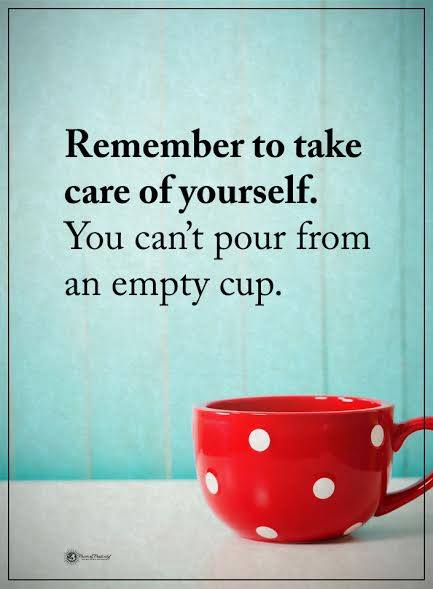Do you prioritize taking care of yourself?
“Each one has to find his peace from within. And peace to be real must be unaffected by outside circumstances.” – Mahatma Gandhi
As one reflects on this quote from perhaps the greatest Peacekeeper in history, the latter part of Gandhi’s statement catches our eye: “must be unaffected by outside circumstances.” Unaffected by the stressors we encounter every day. Unaffected by forces that attempt to derail us from living life with a sense of inner peace. This is a challenge for most of us, as it was a challenge for Gandhi. The man encountered injustices that would make even the most resolute among us tremble. Yet, he was able to overcome these circumstances in a peaceful and loving way.
Perhaps the biggest reason for Gandhi’s victorious life was his exceptional devotion to cultivating his inner strength. He once said “Strength does not come from physical capacity. It comes from an indomitable will.” He used his will to defeat both internal and external forces that attempted to defeat him. We too can recognize these internal forces and defeat them. There are ways that inner turmoil manifests itself and, once identified, can be overcome.
Here are ten signs you may not be taking care of yourself:
Take care of yourself – you are the priority!

1. Not embracing self-acceptance
This is one that many of us struggle with – the ability to simply embrace who we are. For whatever reason, we instead make fruitless attempts to think, act, and appear different than what we truly are. A predominant reason is that we attempt to mold ourselves to society’s expectations of who we should be and how we should live.
Self-acceptance is elusive, but it’s certainly possible. It’s not only a healthy and peaceful way to live; it should be the only way to live. Self-acceptance is simply embracing our inner selves without reservation or judgment. We should all seek to connect with our emotional, mental, physical, and spiritual selves.
2. Not living with self-compassion
When we incessantly berate ourselves, self-compassion becomes impossible. Continuously punishing our self-image and refusing to accept mistakes is a sure path to an unhappy destination.
The solution is to treat ourselves with compassionate care. We accomplish this by admitting our shortcomings while resisting the urge to hand out needless self-punishment. Nobody is without faults and flaws, and the willingness to accept this universal truth determines our capability to render self-compassion.
3. Not connecting with your needs
Selfless people are the lifeblood of any noteworthy society. That said, self-denial can be taken to an unhealthy and unnecessary extreme. As human beings, it is paramount that we are attentive to our needs. We all require love, acceptance, and purpose in our lives. Self-deprivation is not an altruistic trait, nor is it needed.
Instead, all of us should be cognizant of the fact that our needs are of the utmost importance. Taken a step further, our needs should provide the foundation that lends meaning to our lives. Let us all connect with our emotional, physical, mental, and spiritual needs.
4. Not connecting with your thoughts
There’s no way around it: our thoughts will default to auto-pilot if we allow it. The human mind is a magnificent gift, but only if we’re nurturing towards it. One aspect of our mind that is often subconsciously overlooked is that it is habitual. In other words, it’ll often repeat thoughts that have surfaced – both positive and negative.
To connect with our thoughts is to be mindful of their presence. Specifically, we recognize and make adjustments to unhealthy thought patterns while making it a point to embrace and duplicate positive thoughts. A special emphasis is placed on recognition here; for only through recognition can we consciously intervene and control our thoughts.
5. Not connecting with your beliefs
Would Gandhi have left such a remarkable legacy without an ability to connect with his beliefs? No, of course not, as Gandhi’s beliefs were his guiding principles. In the same way, we cannot expect to omit our beliefs if we aim to not only leave something behind but create a meaningful existence.
That said, we should ask ourselves if we’re truly connecting with our beliefs. Are we embracing our beliefs or substituting them for something else? Despite of any internal or external influences, our true beliefs and convictions remain. They simply require that we recognize their presence and act on them.

6. Not connecting with your intentions
One universal trait that we all share is the ability to seek and create our own destiny. Unfortunately, our lives rarely unfold as planned – this is when we should revisit our intentions. It’s natural for our expectations to shift as we continue throughout life. As we evolve, so do our aspirations.
It’s important that we continually revisit our intentions, as they provide a “True North.” Are we living in a way that’s conducive to our intentions or are we ignoring them? Achieving a dream – large or small – requires that we reexamine our purpose.
7. Not connecting with your expectations
This issue is complicated. Having expectations for ourselves is important, but we can also take that to an extreme. Limiting expectations frees us from disappointment, but minimization of expectations can create complacency.
The solution to this enigmatic reality is to simply be lenient. Goals are important, yes, but so is the ability to shed unnecessary pressure. The important thing is that we have achievable expectations without self-imposed burdens.
8. Neglecting self-kindness
As children, most of us are taught to be kind to everyone. Showing kindness is an act of love and a requirement if we wish to live in a meaningful world. Self-kindness is as important, if not more so than the benevolence we exude.
So, be kind to yourself. Forgive yourself. Love yourself. Take care of yourself. Be merciful with yourself. An added benefit: the kindness you give will be much greater in proportion.
9. Abandoning wants and desires
Withholding some wants might be necessary for some circumstances. Outside of anything selfish or counterproductive, it’s healthy to keep our wishes in mind. Many of us want a family; have educational aspirations; seek a certain career, etc.
When life becomes turbulent, it’s easy to abandon our wants and desires. Our hope is that you seek out and achieve your wishes that contribute to a meaningful life. Simply keeping our aspirations in mind and revisiting them on occasion is enough.

10. Not living with self-awareness
The capacity to be aware of our thoughts and actions is one that is exclusive to the human race. It’s also one that is commonly taken for granted. Our ability to understand how our behavior affects ourselves, others and our world is one that we should regard of the utmost importance.
So, make it a priority to do a bit of introspection. Are your thoughts and actions helpful or hurtful to yourself, others and your world? Be honest with yourself. One of the beautiful things about being human is our ability to change course and live a life that we and others deserve. Take care!
















